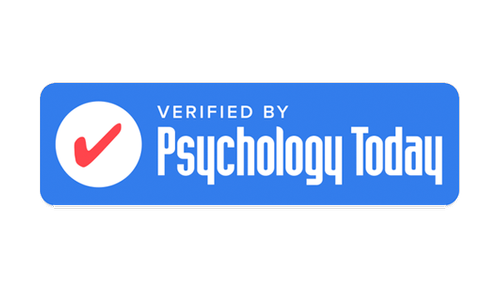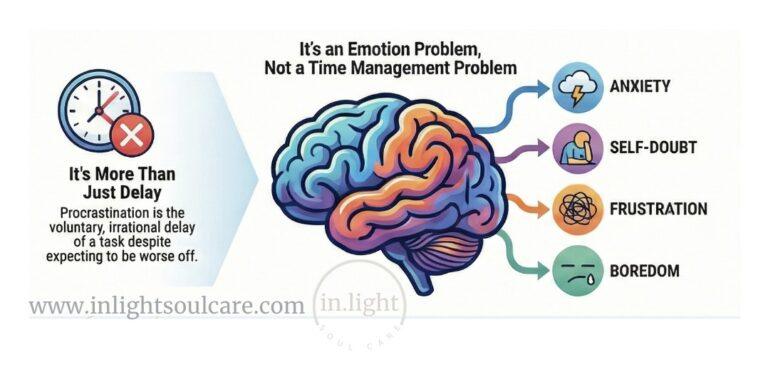Finding Your Way After Burnout: A Therapist’s Reflection on Change and Renewal
Burnout doesn’t end the day you stop working and go on stress leave. For many professionals I meet, it’s when the noise quiets and you have to face being at home alone all day that people seek therapy for burnout in Ontario, and the real work begins.
You’ve been wandering the house feeling lost – not sure what to do with yourself. The lack of consistency is jarring. There’s the journal sitting open beside your coffee, and you’re not sure what comes next. This is the in-between season, when you know something has to change but aren’t sure what comes next. In fact, you aren’t even sure you know who you are anymore.
As a psychotherapist, I’ve sat with many people in this space: nurses, educators, clergy, and healthcare professionals who have given everything they had. They arrive on leave, aware that they have lost a sense of themself – who am I now? How do I go back to that person? How do I move forward to the person I want to become?
You Are Not the Problem
Burnout convinces you that you’ve failed; that you weren’t strong enough, resilient enough, or grateful enough. But burnout is a system failure that has worn through your professional identity – it’s not a flaw in you.
When I work with clients during therapy for burnout in Ontario, whether before or during stress leave, one of the first shifts we make is internal. You are not the problem, but you are worn down, and now you have an opportunity to shift into something new. You’re at a turning point.
That clarity matters. Because when you see burnout as evidence that something needs to change, and you’re ready to face that hard truth, then recovery begins to move forward.

The Rebuilding Begins with Identity
Many people try to rest their way out of burnout, but recovery is not passive. It asks you to rebuild from the inside out. To get to know yourself again and identify what energizes you, what drains you and who you want to become.
Professional identity formation is the process of rediscovering who you are and who you want to be in your work, your relationships, and your daily life. It means looking honestly at what’s not working, naming what matters to you most, and aligning your choices with your values again.
In therapy for burnout, I often ask:
What brings you energy, even in small ways?
What consistently drains you?
When do you feel most aligned with your values?
These questions reconnect you to meaning and purpose — the deeper threads that sustain long-term wellbeing.

An Experiment: Energy and Drain
If you’re in the middle of stress leave, start small. Spend some time noticing what drains you and what energizes you. Don’t analyze or fix it, just observe.
You’ll begin to see patterns that show you where your energy leaks and where it renews. Those patterns often become the map for your next phase of recovery.
Clarity is important as you create a roadmap for your stronger self. The goal is not to return to who you were before burnout, but to move toward a version of yourself that feels congruent, grounded, ethical, and alive.
Meaning, Purpose, and Renewal
For many professionals, burnout shakes meaning. Therapy with me is not about yoga, breathing and nervous system regulation (although if you need that, great!! many somatic therapists can help you!) Therapy with me will explore what isn’t working in your head and your habits and what you want to re-build next. It is not easy work, and you will rediscover new insights about yourself to help you move forward stronger.
Meaning and purpose are not abstract ideas. They are practical guides. When aligned with your values, they give shape to decisions about work, rest, relationships, and boundaries.
That’s why recovery is as much about reorientation as it is about relief.
You Can Find a Way Forward
If you’re sitting at your table with your head in your hands, wanting to find a way through but wondering where to begin, know this: you can develop a clear plan for change, hope, and a future that deeply resonates with your values.
Burnout isn’t the end of your story. It’s the moment your story asks to be rewritten with care, wisdom, and integrity. Finding therapy for burnout in Ontario might be just what you need.

What Happens in a Free Consult?
Your 20 minute consult is a no-pressure conversation.
– Talk about what’s weighing on you
– Learn how I approach recovery and what sessions will be like
– Decide if we’re the right fit
You’ll leave with clarity on your next step, whether we work together or not.
Written by Erika Mills, Registered Psychotherapist (CRPO #15213), CASC/ACSS-certified Supervisor-Educator, and Director of Spiritual Care in LTC. Erika specializes in therapy for burnout in Ontario, moral injury, and professional identity formation for helping professionals. Her framework, The Cost of Care™, guides people through four stages of recovery: The Drain, The Break, The Turn, and The Return.
















